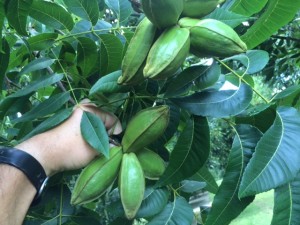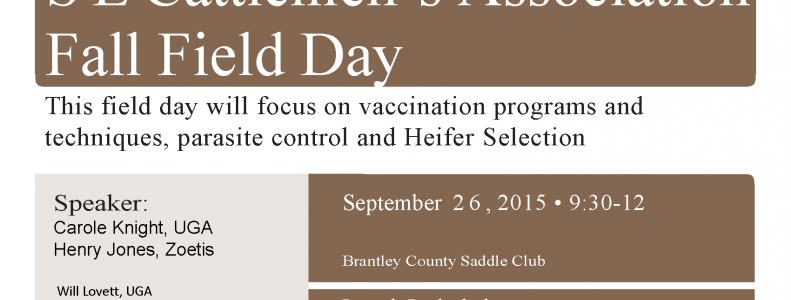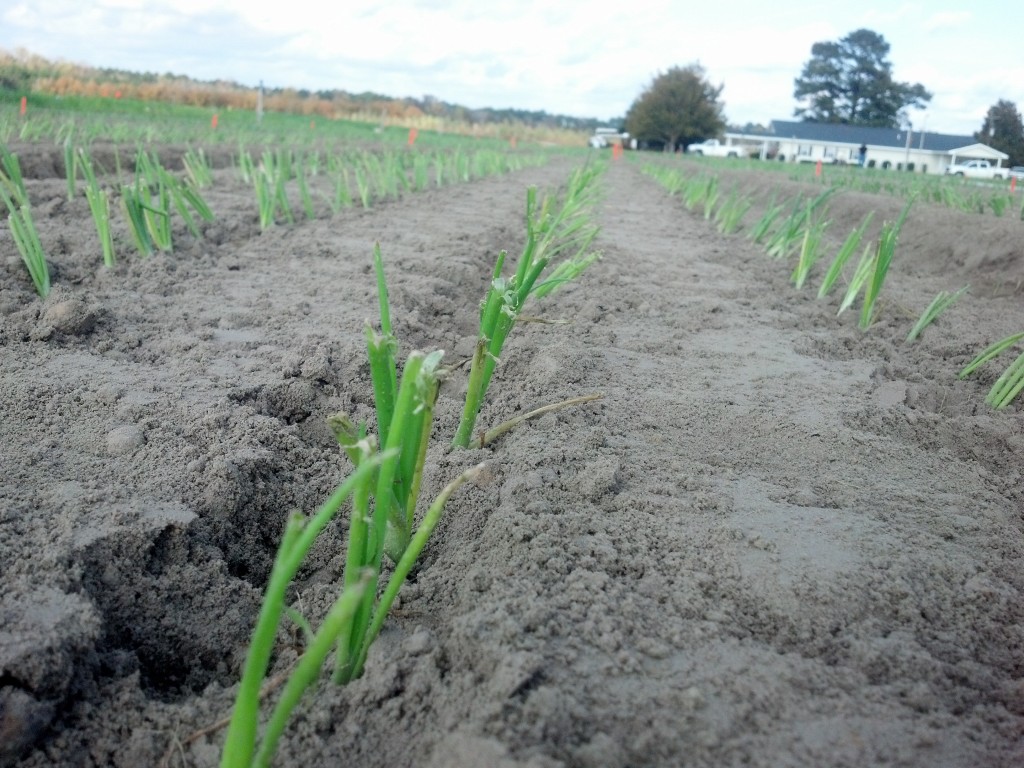Recent Posts
-

Here is a recent post on pecan cultivars by Dr. Lenny Wells, UGA Pecan Specialist: The topic of cultivars is an endless source of discussion for pecan growers. We are always on the lookout for the perfect cultivar but in reality it probably doesn’t exist. Every orchard situation is different and there are problems with any…
Posted in: Uncategorized -

The Southeast Georgia Cattlemen’s Association and UGA Extension will be hosting a Fall Field Day on September 26th in Brantley County. See the flyer below for details.
Posted in: Uncategorized -
The annual Vidalia Onion Production Meeting is scheduled for Tuesday, August 25th at the Vidalia Onion and Vegetable Research Center. The details are below. TO: Vidalia Onion Producers and Industry Representatives RE: 2015 Annual Onion Production Meeting The Annual Vidalia Onion Production Meeting will be held on August 25, 2015 at 12:00 noon, at…
Posted in: Uncategorized -

As the season progresses, we are starting to see more white mold in peanuts. Please see the crop disease update below, which includes strategies for ramping up your white mold spray program if you are not satisfied with your control. Crop Disease Update from Bob Kemerait 1. We still have not found Asian soybean rust…
Posted in: Uncategorized -
Southern States is having a field day in Glennville on August 18th. They will be discussing high yield soybean production. See the flyer below for details.
Posted in: Uncategorized -

Southeast Pecan Field Day Coming Up! The Southeast Georgia Pecan Field Day is coming up soon! It will be held on Wednesday, August 19th. It will start at 9:00 am, and end with a catered lunch. The field day will be held at Parker Brothers Farm, located at 334 Veal Camp Road, outside of Baxley. …
Posted in: Uncategorized -

Many people have problems with bahiagrass in their centipede lawns. Bahiagrass is the grass that shoot up the long stems that have a V shaped seedhead. Seeing bahiagrass in a centipede lawn is an eyesore to many people. There are several good options for control of bahiagrass in centipede lawns. One option is to apply…
